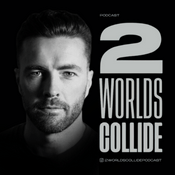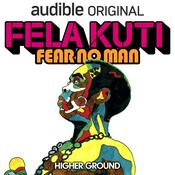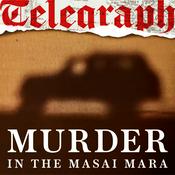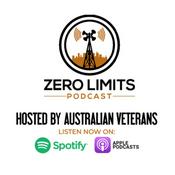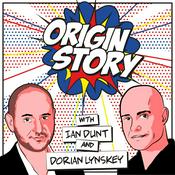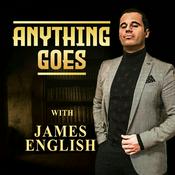68 episodes
- Lisa Lynn's family members break their silence after years of declining to speak to the media.
Rachael Brown has been in Tasmania to hear from Lisa's mum, Kim Searle, her dad, David Searle and her two sisters, Karen and Linda.
If you or anyone you know needs help, please call Lifeline, on 13 11 14.
Or contact Australia's national domestic family and sexual violence counselling service 1800 Respect, on 1800 737 732.
To binge more great episodes of Unravel, the ABC's award winning investigative true crime podcast documentary series, search 'Unravel podcast' on the ABC listen app (Australia) or wherever you get your podcasts.
There you'll find previous series covering various crimes and crime-related topics including solved and unsolved murder cases, forensic analysis, gangland crimes, love scammers, con-artists, drugs, terrorism, neo-nazis, and miscarriages of justice — all investigated by some of Australia's best reporters and people who know the story best. - When Lisa's friends hear that Greg Lynn has been arrested, their painful memories of his abusive behaviour are brought up all over again. In clinical detail, Greg Lynn tells police how he disposed of the missing campers' bodies, claiming that their deaths were accidental. Greg Lynn is found guilty of murdering Carol Clay. He's acquitted of murdering Russell Hill. Now, Lisa's friends want an inquiry into her death.
If you or anyone you know needs help, please call Lifeline, on 13 11 14.
Or contact Australia's national domestic family and sexual violence counselling service 1800 Respect, on 1800 737 732.
To binge more great episodes of Unravel, the ABC's award winning investigative true crime podcast documentary series, search 'Unravel podcast' on the ABC listen app (Australia) or wherever you get your podcasts.
There you'll find previous series covering various crimes and crime-related topics including solved and unsolved murder cases, forensic analysis, gangland crimes, love scammers, con-artists, drugs, terrorism, neo-nazis, and miscarriages of justice — all investigated by some of Australia's best reporters and people who know the story best. - When Lisa's body is found in the front yard of her bluestone cottage, her friends are in disbelief. The coroner says no suspicious circumstances were found. Lisa's friends are left searching for answers.
The ABC has republished lyrics from 'Nobody's Baby Now', written by Nicholas Cave (C) BMG Rights Management (UK) Limited. Licensed Courtesy of BMG Rights Management (Australia) Pty Ltd.
If you or anyone you know needs help, please call Lifeline, on 13 11 14.
Or contact Australia's national domestic family and sexual violence counselling service 1800 Respect, on 1800 737 732.
To binge more great episodes of Unravel, the ABC's award winning investigative true crime podcast documentary series, search 'Unravel podcast' on the ABC listen app (Australia) or wherever you get your podcasts.
There you'll find previous series covering various crimes and crime-related topics including solved and unsolved murder cases, forensic analysis, gangland crimes, love scammers, con-artists, drugs, terrorism, neo-nazis, and miscarriages of justice — all investigated by some of Australia's best reporters and people who know the story best. - The couple have two children, but Lisa discovers Greg's been keeping secrets. Greg leaves Lisa, but doesn't leave her alone. Lisa starts pushing back on Greg's demands, his behaviour escalates.
If you or anyone you know needs help, please call Lifeline, on 13 11 14.
Or contact Australia's national domestic family and sexual violence counselling service 1800 Respect, on 1800 737 732.
To binge more great episodes of Unravel, the ABC's award winning investigative true crime podcast documentary series, search 'Unravel podcast' on the ABC listen app (Australia) or wherever you get your podcasts.
There you'll find previous series covering various crimes and crime-related topics including solved and unsolved murder cases, forensic analysis, gangland crimes, love scammers, con-artists, drugs, terrorism, neo-nazis, and miscarriages of justice — all investigated by some of Australia's best reporters and people who know the story best. - More strange signs of a cruel streak emerge after Greg Lynn and Lisa Lynn settle in a bluestone cottage in the sought-after postcode of Mount Macedon, Victoria. Lisa's friends are horrified by what happens to a pet pig. Greg decides he needs to punish Lisa for drinking too much.
If you or anyone you know needs help, please call Lifeline, on 13 11 14.
Or contact Australia's national domestic family and sexual violence counselling service 1800 Respect, on 1800 737 732.
To binge more great episodes of Unravel, the ABC's award winning investigative true crime podcast documentary series, search 'Unravel podcast' on the ABC listen app (Australia) or wherever you get your podcasts.
There you'll find previous series covering various crimes and crime-related topics including solved and unsolved murder cases, forensic analysis, gangland crimes, love scammers, con-artists, drugs, terrorism, neo-nazis, and miscarriages of justice — all investigated by some of Australia's best reporters and people who know the story best.
More Society & Culture podcasts
Trending Society & Culture podcasts
About Unravel
'Blood on the Tracks' is the latest season of Unravel, the ABC's award-winning true crime podcast. After explosive new developments in the case, this podcast — first released in 2018 — has been updated and re-released.
Just outside Australia's country music capital, a young man's body is found on the train tracks, surrounded by shattered Christmas presents and discarded wrapping paper. For decades, the mystery has haunted Tamworth. After Unravel's award-winning first season, 'Blood on the Tracks' brought national attention to the case, a new inquest was launched. Now, Muruwari and Gomeroi journalist Allan Clarke returns to where it all began for Unravel, revisiting Tamworth and uncovering what's happened since, as the long-awaited final chapter of the story unfolds, and there are major new revelations in the inquest hearings. The original 'Blood on the Tracks' won a Walkley award for Coverage of Indigenous Affairs.
Previous seasons of Unravel have covered everything from love scams to neo-nazi gangs.
In Season 6, Mr Big, a scratchy recording made in a Melbourne hotel room above a casino captures a man admitting to murder. But as journalist Alicia Bridges investigates the man on the tape known as Mr Big, she finds herself in a world of lies and subterfuge, where very few things are as they seem. The recording leads her deep inside an international controversy, to a world of secrets that powerful institutions don't want revealed. Mr Big won a silver New York Festivals award for Investigative Journalism Podcasts.
In Season 5, Firebomb, Crispian Chan investigates what really happened after his family's restaurant went up in flames in 1988. He was just a kid when Chinese restaurants were being firebombed in the dead of night and a campaign of terror was underway in Perth. Thirty-five years on, most of us have never heard about it, even though it's one of the few sustained and coordinated terrorism campaigns in Australia's history. Crispian teamed up with ABC reporter Alex Mann, and together they traversed the country to find answers and explore the darker forces that still lurk in our suburbs today. 'Firebomb' won Best True Crime at the Australian Podcast Awards.
In Season 4, Snowball, Ollie Wards investigates how his brother's whirlwind romance with a charismatic Californian woman ultimately cost his family more than a million dollars. When Greg Wards met Lezlie Manukian, a beautiful woman whose world is full of glamour, he is immediately drawn to her. They fall in love, get married and start planning the rest of their lives together — the only catch is Lezlie is a con artist. To find out who his brother's wife really is, Ollie must track down Lezlie herself, and it soon becomes clear that his family's story is just one piece of a bigger jigsaw. 'Snowball' won Best True Crime at the Australian Podcast Awards in 2020, was one of Apple Podcasts' Best Listens of 2019, made the American Bello Collective's top 100 list that year.
In Season 3, Last Seen Katoomba, reporter Gina McKeon digs deep into the suspicious unsolved disappearance of young mum, Belinda Peisley, who was last seen in the Blue Mountains town of Katoomba, west of Sydney, in September 1998. Belinda's life descends into chaos after her 18th birthday when she receives a large inheritance and buys her own place in town. It's a move her family thinks will set her up for life but, instead, the house becomes a magnet for a world of drugs and a crowd of hangers-on who visit day and night. Gina pieces together the stories and evidence around the six main persons of interest named in the inquest into Belinda's disappearance and suspected death, and what emerges is a picture of a town and a case shrouded in secrecy.
In Season 2, Barrenjoey Road, reporter Ruby Jones tries to solve the mystery of what happened to 18-year-old Trudie Adams after she disappears while hitchhiking home on Sydney's northern beaches in 1978. Ruby exposes the dark underbelly of the seemingly beautiful and serene "Insular Peninsula," uncovering a world where surfers run drugs home from Bali, gangs of men prowl the beaches and predators have unchecked power. Ruby will question why the case was never solved and her investigation will lead her to a criminal monster with links to organised crime and police corruption at the highest level.
In Season 1, Blood On The Tracks, award-winning Muruwari and Gomeroi journalist Allan Clarke spends five years investigating the unusual circumstances surrounding the death of 17-year-old Gomeroi teenager, Mark Haines. In 1988, just outside of Tamworth in country New South Wales, a freight train hits Mark's body lying across the tracks. When the rail worker stops the train and gets out, the scene doesn't add up. The tracks divide Tamworth in two. An Aboriginal community on one side, a largely white population on the other. Some will say it was a suicide and others a murder. Despite the strange evidence found at the scene of his death, the family feel like they're being ignored by police. An inquiry finds no answers and the mystery is left to fester, causing division and suspicion in the town. Allan's reporting helps to spark a resurgence of interest in the case that sees the file reopened, a review launched, a reward announced. As Allan gets closer to the truth, the story ends with a revelation no-one was expecting, and the thirty-year-old mystery finally begins to unravel.
Podcast websiteListen to Unravel, It's A Lot with Abbie Chatfield and many other podcasts from around the world with the radio.net app

Get the free radio.net app
- Stations and podcasts to bookmark
- Stream via Wi-Fi or Bluetooth
- Supports Carplay & Android Auto
- Many other app features
Get the free radio.net app
- Stations and podcasts to bookmark
- Stream via Wi-Fi or Bluetooth
- Supports Carplay & Android Auto
- Many other app features


Unravel
Scan code,
download the app,
start listening.
download the app,
start listening.




